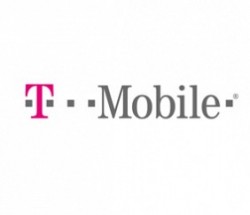 In an unusually detailed press release this morning, T-Mobile has announced its key strategy for moving forward in the wake of the rejection of the T-Mobile/AT&T merger by regulators earlier this year.
In an unusually detailed press release this morning, T-Mobile has announced its key strategy for moving forward in the wake of the rejection of the T-Mobile/AT&T merger by regulators earlier this year.
T-Mobile USA currently faces an uncertain future as parent company Deustche Telekom accelerates its own 4G LTE transition in Europe at the expense of the US division, which has consistently underperformed for the German telecommunications conglomerate.
As the fourth largest national carrier in the US, T-Mobile USA’s MO is to provide the most value for postpaid and prepaid service in comparison to other larger carriers, often at the expense of its own profitability and capability to remain competitive in terms of device offerings, since it is the only branch of the larger T-Mobile conglomerate to not offer the iPhone while the top three carriers and one regional carrier in the US currently offer both models.
T-Mobile USA was also the last US carrier to complete its 3G network, having only fully deployed 3G services on a nationwide level in 2009, years after Sprint, AT&T and Verizon completed their own rollouts and subsequent expansions, at the expense of both international compatibility with its sibling networks and manufacturer support, as reluctant manufacturers offer variants of flagship devices while not being able to enjoy the same economies of scale that are typical with widely supported network frequencies, as Canada is the only other country to support the network frequency split that drives T-Mobile’s 3G network, leading to higher per unit device costs.
In order to throw itself one last liferaft and to stem the increasing dissatisfaction from Deutsche Telekom, shareholders and customers, T-Mobile has announced its most ambitious plan yet to save the company from irrelevance and eventual divestiture by announcing plans to launch 4G LTE service in 2013 and transitioning away from GSM/EDGE service by reclaiming spectrum from the GSM network and using it to power the 3G UMTS/HSPA+ network as the new default network on the PCS 1900 frequency currently used by the GSM network, while the 4G LTE network will operate on the newer AWS 1700/2100 frequency as the dedicated band for that network.
According to T-Mobile, device sales are the driving force behind the move to UMTS only service away from GSM/EDGE as it claims that 90% of its Q4 device sales were smartphones with 3G HSPA+ support and sales of GSM/EDGE only devices have fallen to negligible levels. The carrier has promised that it will continue to provide service for GSM/EDGE customers during the transition, but most believe that T-Mobile is already accelerating that transition by quickly expanding 3G only access all the way down to prepaid and MVNO access, with Simple Mobile and now TracFone now offering service on T-Mobile’s 3G network with prepaid SIM cards.
T-Mobile will invest a total of $4 billion over time into its network transition and LTE deployment in order for the plan to come to fruition over the next two years, representing approximately $1.4 billion in current incremental network investments. T-Mobile also expects an initial broad deployment of LTE, with service in the top 50 markets and 20 MHz spectrum service in 75 percent of the top 25 markets from the recently acquired spectrum holdings beginning in 2013.
Well if tracfone, and simple mobile offer the same service for cheaper, then why would you want to stay with T-mobile? For their glorious, and legendary service – maybe, if you could go back a year or two. Fact is: Tracfone alone adds half a mil subscribers a quarter (and then it’s a bad quarter), in all probability, the largest share of those users go to AT&T’s network. T-mobile could only do better by selling their network cheaper, and let someone else deal with the cs, and paperwork….I just wonder if their network could take the strain, even with the said investments.
TracFone’s 4G offering includes HSPA+ phones running on the Tmo network so they obviously are choosing Tmo for their 4G needs for a reason. Also, I have yet to hear of TracFone having LTE phones in the mix. It will happen though for sure. TracFone is too good of a service to fall that far behind. TracFone is opera wielding a double-edge sword, they have the benefit of operating across networks but are not in control of those networks. Their new “unlocked SIMs” allowing a device to operate on Tmo & ATT is a game changer though.
@ Mike; like what Oklami says: “I just wonder if their network could take the strain, even with the said investments” – how long can it last….and in fact; sustain?